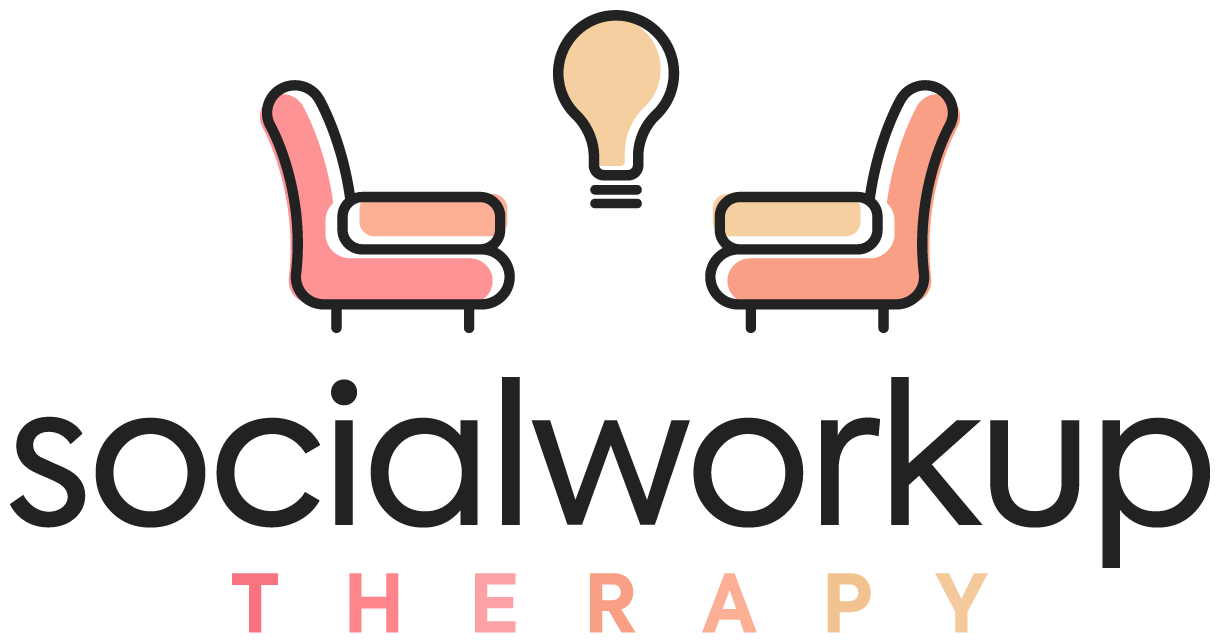How to Tell Your Parents You Need Therapy
**Every family is different. You may have a parent, parents, guardian, or caregiver. “Guardian” will be used for the sake of this post.
How to Tell Your Parents You Need Mental Help
As a teen or young adult, you’re holding a multitude of changes, feelings, and experiences all at once. If a regular space to tend to your mental health will support you, trust your gut! Tending to your mental health is never a waste.
While finding the right therapist for you is an important part of the process, the first step is to have the conversation with your guardian(s). It’s a unique space to have a private experience for your mental health but still need to share certain details with your guardian. Approaching this conversation will not only support you but it will broaden your whole family’s relationship with communicating about their mental health. Every family dynamic is different so this might feel really comfortable for you or super uncomfy. Besides communicating with your guardian(s) at the start, it’s also necessary for the process of finding a therapist such as onboarding documents (if under 18) or if you’re under your guardian’s insurance. Therapists are trained to prioritize your privacy and safety while supporting you in that process.
As you anticipate bringing up the topic with your guardian(s), here are a few tips that may help calm your nerves and prepare for a productive conversation together.
First, uncover your why. How do you feel therapy would help you? What’s a current struggle that’s been difficult to manage? Feeling secure in your choice and reasoning can help you to articulate this when a guardian asks. It can also help you to feel firm in your decision regardless of how their reaction may be.
If you feel anxious thinking about how they might react, consider the best case, worst case, and average. For example, the worst case scenario may be that they don’t understand, feel caught off guard, and don’t agree during the conversation. The best case scenario may be that they understand right away, help you get set up, and then provide you the space to heal on your own. An average of the two may be that they are caught off guard and need a few days to sit with the idea before supporting your decision. This exercise can help you to manage feelings of anxiety, prepare for multiple reactions, and feel more calm before initiating the convo.
Collect the details. When a guardian first hears you’re interested in mental health support, they may be curious about exactly what you mean. Do you want to see a therapist one-on-one? Do you want to go in-person or virtually? Do you want to go to a support group? Do you prefer art therapy? Do you not know what you need just yet but know you want some support? Do you already know which therapist you want and their payment options? Having details ready for questions they may ask can help you to feel more at ease and less dysregulated during the conversation.
Choose an environment for the conversation that’s as comfortable as possible. When having a conversation that feels a bit more serious, formal, or potentially uncomfortable, consider making the most of the environment. Having the conversation while going on a walk can help remove the spotlight/interrogation effect and help both of you feel more relaxed. You can also consider having a special one-on-one day with a guardian if you have a close relationship.
Look at the supports already available. If they are not on board with therapy or if you don’t have a strong relationship with your guardian, that does NOT mean you no longer have an opportunity to tend to your mental health. If you feel time will not help the issue, you can also start by extracting all the benefits available from current support systems and resources. School counselors and workplace wellness centers are equipped to support you confidentially with the support you need.
If you’re not sure how to start, consider this example script:
“Hey ______,
I know this may seem out of nowhere or you may have noticed but I feel like I can use some help for my mental health. Recently I haven’t been myself. [expand as little or as much feels right for you.] I’ve been learning about options out there like therapy. There I’d be able to learn new skills and strategies that can help me now and in the future. I think it would make a difference. What do you think?
I can send you some links for therapists and options that look good to me for now. Does that sound like something we can make happen?”
If a guardian doesn’t fully understand therapy, doesn’t understand mental health changes, or starts to feel guilty or worried, try to muster up grace as they slowly understand those things. Sharing YouTube videos with them and giving them a short period to better understand these services to the point you do can help the conversation more than trying to convince them within one conversation. You can also assure them that it is not an indication of their shortcoming but that therapy is preventative action and getting connected is a sign of how supportive they are.
Every dynamic and relationship is different. See what resonates with you and use this as a launching pad to a process that works best for you. If you’re reading this, you’re already one step closer to tending to your needs. You got this! Sometimes the world around us isn’t as open about topics that we are but that doesn’t mean it is any less valid or worthy of attention.
If you’re not sure where to start with getting connected, check out this recent blog post on how to find the right therapist for you.

